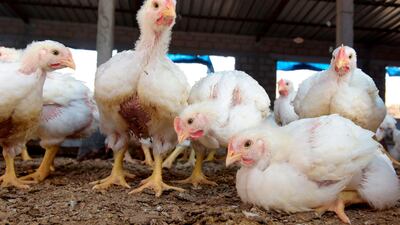A virus outbreak has prompted UAE environment chiefs to impose a ban on live birds from Russia being brought into the country.
The Ministry of Climate Change and Environment has halted the import of all species of domestic and wild live birds, ornamental birds, chicks, hatching eggs, meats and meat products and non-heat-treated wastes after the outbreak of a highly pathogenic strain of bird flu, H5N2, on a farm in the central region of Kurskaya Oblast in Russia.
The ministry has taken action following a notification from the World Organisation for Animal Health regarding the outbreak.
The ban is in regards to the affected region as well as previously infected provinces Respublika Kalmykia, Astrakhanskaya Oblast and Kostromskaya Oblast in Russia.
Thermally treated poultry products – meat and eggs – have been cleared for import from all parts of Russia, however.
__________
Read more:
Highly contagious virus prompts UAE to ban chicken eggs and meat from Russia
Saudi Arabia confirms H5N8 bird flu outbreak
__________
Dr Majid Sultan Al Qassimi, Assistant Under-Secretary for the Food Diversity Sector at the ministry, said: "These measures reiterate the ministry's keenness in achieving its strategic objectives including enhancing bio-security levels and eliminating pathogens before they enter the country. In doing so, the ministry prevents the bird flu virus and related risks and impacts on the country’s poultry health and safety, in addition to protecting public health and well-being."
The ministry is carefully scrutinising documentation accompanying consignments – certificate of origin, health certificate and halal certifications, among others – of food products shipped into the country.
The authority is also conducting sensory detection to ensure that the quality of the products – as per their identification cards – complies with UAE standards.
Samples of food products from shipments are transferred to laboratories for the necessary tests to ensure they are safe and fit to enter the country.


